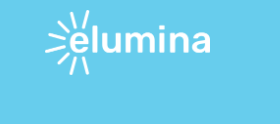Did you know that programs do all of your sources for you? Or there are services like PaperHelp that help you write academic papers. And in a search query, you can immediately weed out irrelevant results. A digital environment can optimize your entire life and save time. But to do this, you need to have digital literacy skills. What they are and how to pump them - in our article.
What is Digital Literacy?
Digital literacy is a set of skills that allows you to freely and safely exist in a digital environment.
These skills can be divided into three groups:
- Finding and consuming information;
- Creating and using digital content;
- Communication of information.
Let us deal with each one separately.
Finding and Consuming Information
“Brad Pitt is dead” - in 2016, this news stirred up the entire Internet. People were divided into two camps:
- Those who started clicking on the links and stumbled upon the scammers;
- Those who took it skeptically and went to check the information in official sources.
Who is the more competent consumer of information? The answer is obvious.
The second group demonstrated several useful skills in the digital world:
- critically evaluate incoming information;
- distinguish the truth from fakes;
- Verify information from reliable sources;
- understand who can and cannot be trusted on the Internet;
- not to be influenced or manipulated.
It is also important to know the basics of cybersecurity. Basic digital security rules include detecting phishing, not clicking on suspicious links, not opening emails from unknown senders, and downloading applications only from trusted sites.
Сreating Content and Using Software
It is the broadest group of skills. It includes everything from knowing how to use hotkeys in Google Docs to being able to design a website.
What you need to be comfortable in a digital environment:
- Know how to use messengers, social networks, and email.
- Know how to pay bills, buy tickets, ask for references or make doctor’s appointments using various websites and apps. It saves you time and effort - you won’t have to run all over town.
- Know your office software. Before you even send your resume to an employer, they expect you to know how to use at least Word and Excel.
- Understand what applications will be useful for your job. For example, suppose you’re a translator. In that case, you should have some reliable online dictionaries on hand, and if you’re a creative person, it doesn’t hurt to have apps that develop your insight.
- Understand copyright law. Not using someone else’s is the cardinal rule if you’re actively creating and posting content. But you need to know how to protect yours, too.
More Advanced Skills:
- Data design and visualization;
- SMM;
- SEO;
- Creating audiovisual content: shooting videos and photos, recording podcasts;
- Writing in digital formats: blogs, emails, posts, reviews.
Transferring and Storing Information
Let’s say you must send your parents 200 photos from a family reunion. How would you do that? There are several ways: burn them to a flash drive and give them to them at the meeting, send them via messenger, print them out and mail them in. But the best way is to upload them to cloud storage and send a link.
The habits of the digitally literate person also include:
- Creating and keeping backups of important documents;
- Knowing what content should not be posted on personal pages;
- Protecting personal data.
Digital literacy includes digital etiquette. Have you ever sent a voicemail without telling the person you’re talking to? Maybe you’ve commented rudely on someone’s video or photo? Or left your microphone on at a corporate online meeting when you were done talking? These are all considered bad language. So if you don’t want to be seen as digitally ignorant, follow the rules of online behavior.
Why Develop Digital Literacy
Digital literacy is about optimizing all aspects of your life. Even daily routines become easier if you are confident in the digital space. For example, grocery shopping is less energy-consuming if you use delivery services instead of spending hours walking between shelves in the store.
These improvements affect broader areas as well:
Education. If you are in a program in higher education, want to upgrade your skills, or just like to learn new things and “collect” knowledge, you will need all three groups of digital skills.
- A student who knows how to use advanced search operators will find the information he or she needs faster.
- A 2000s-style presentation with a dancing dog in the corner and a flickering font will draw attention to a paper or project. But a paper designed by design trends will be taken more seriously.
- If you store data properly, even if your laptop decides to suddenly go to his death, he will not pick up your precious diplomas, essays, term papers, and essays with him.
And these are just a few examples. Digital Literacy will help you pick up an online course, schedule, decide which services to use to plan self-study, find an expensive textbook at a discount or even download it for free, and much more.
Work. The situation here is the same as with education. You need more advanced ones in addition to basic skills like making a presentation or working with large amounts of information, which depend on your profession. Copywriters would be nice to know the basics of SEO. Photographers, designers, and artists - to create and maintain a portfolio site and study SMM promotion. Office workers and freelancers - know how to use task trackers such as Trello, notion, or Jiro.
Security. Internet scammers make vast amounts of money every year. To understand the scale: in 2021, people and companies in the U.S. lost about $7 billion[1]. And all it takes to avoid this is awareness of fraudsters’ schemes and critical thinking.
How to Develop Digital Skills
- Determine precisely what skills you need. Do you find it difficult to apply technology to your everyday life? Do you want to use computer programs more effectively? Do you need digital skills for work or school? The answers to these questions will define your goal and give you direction.
- Figure out your starting point. Even if this is your first encounter with the concept of digital literacy, it’s unlikely that your skill level is at zero. At the very least, you can definitely download an app or turn on a computer. So it’s important to figure out where to go next and what to learn. To do this, you can take several tests to assess digital literacy.
Decide how you will learn. You can read articles, watch videos in your free time, or take a ready-made course.



